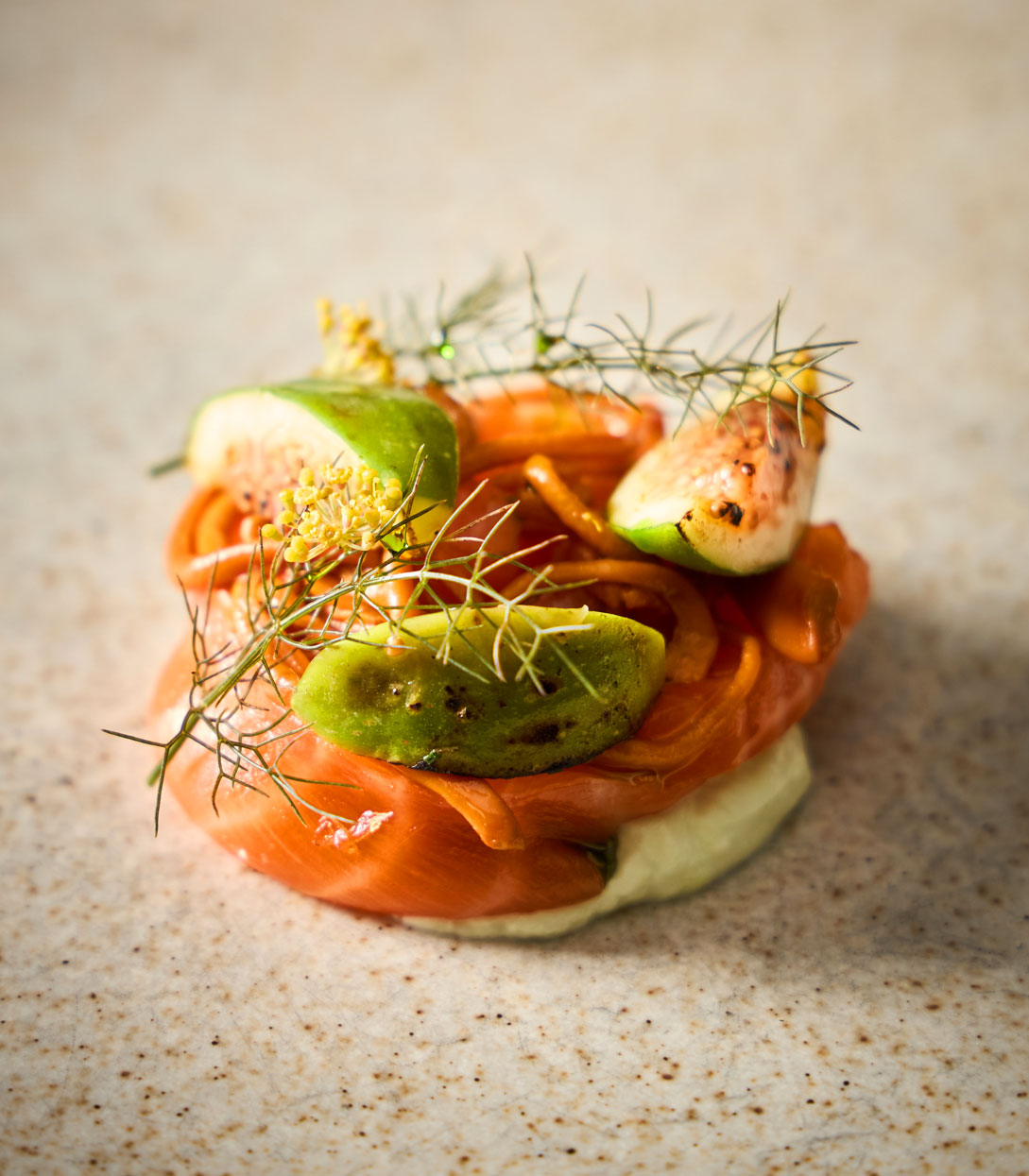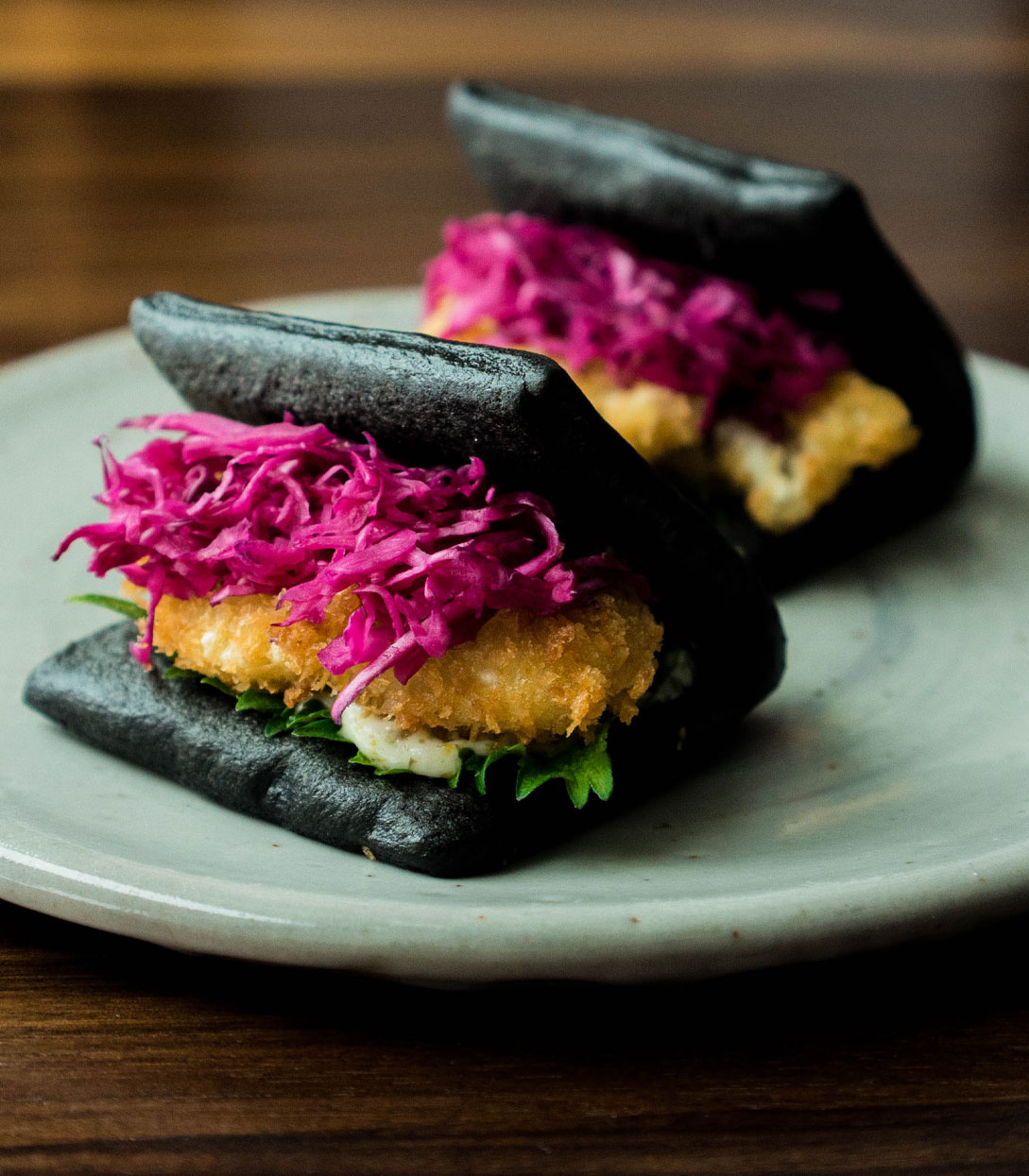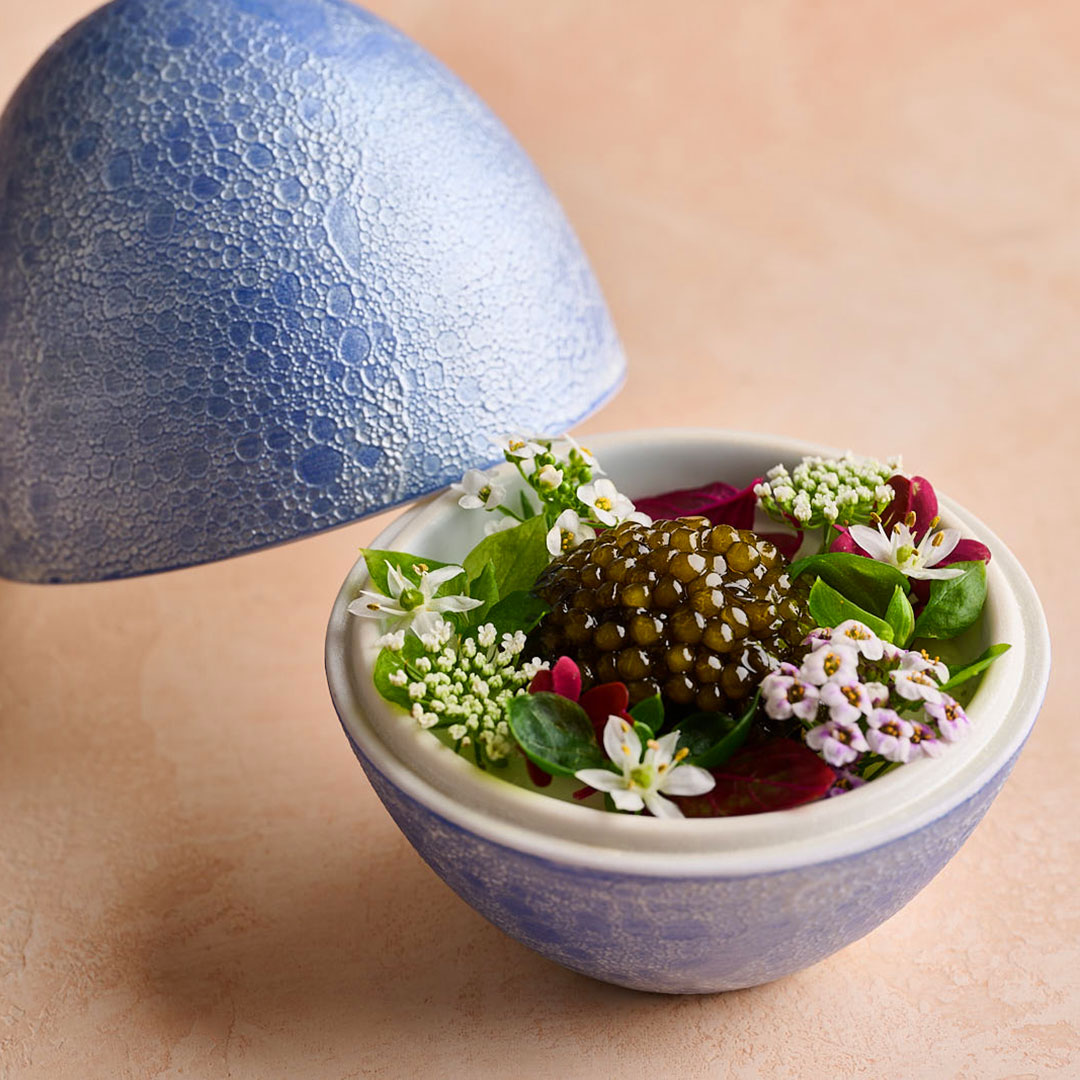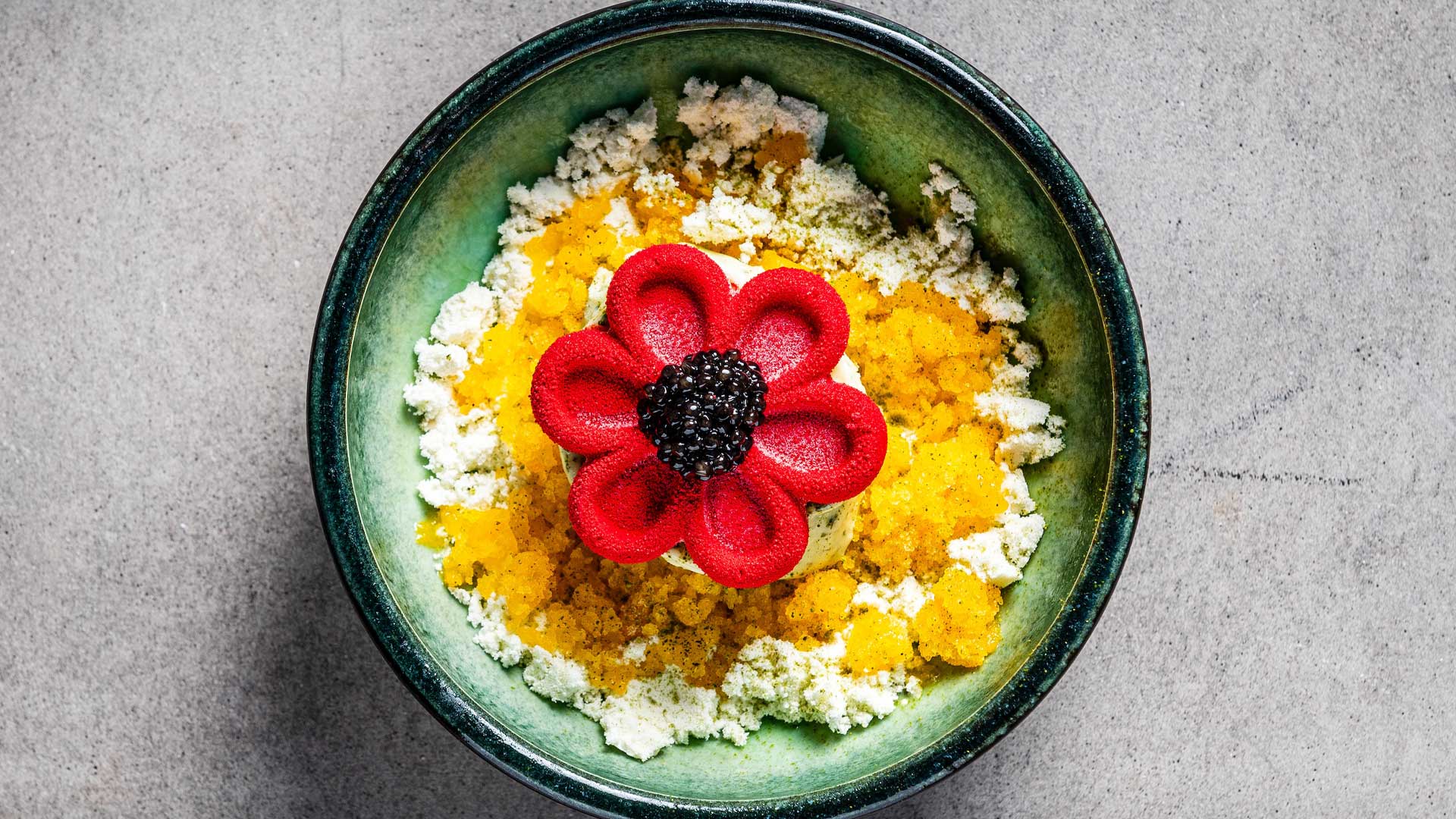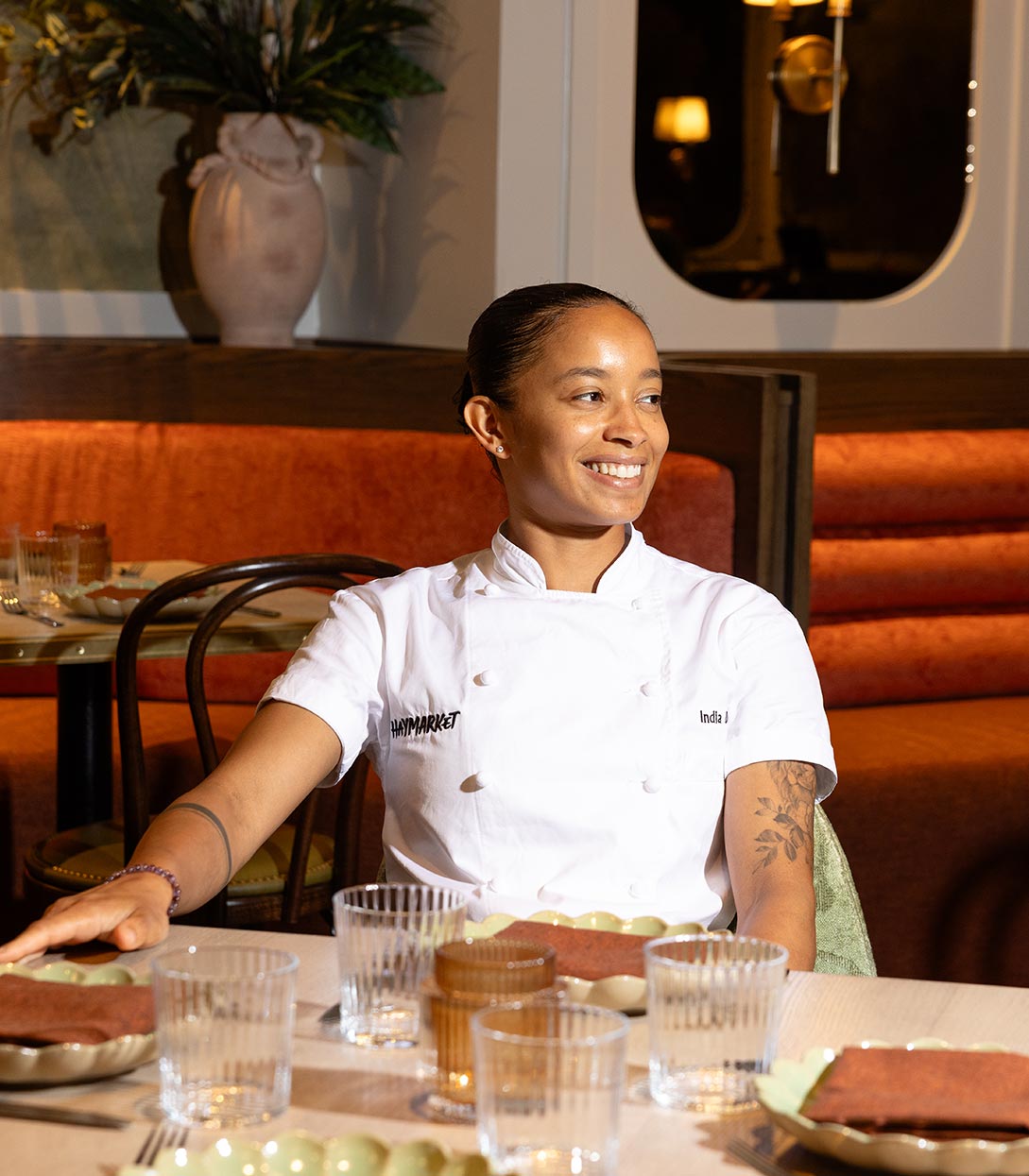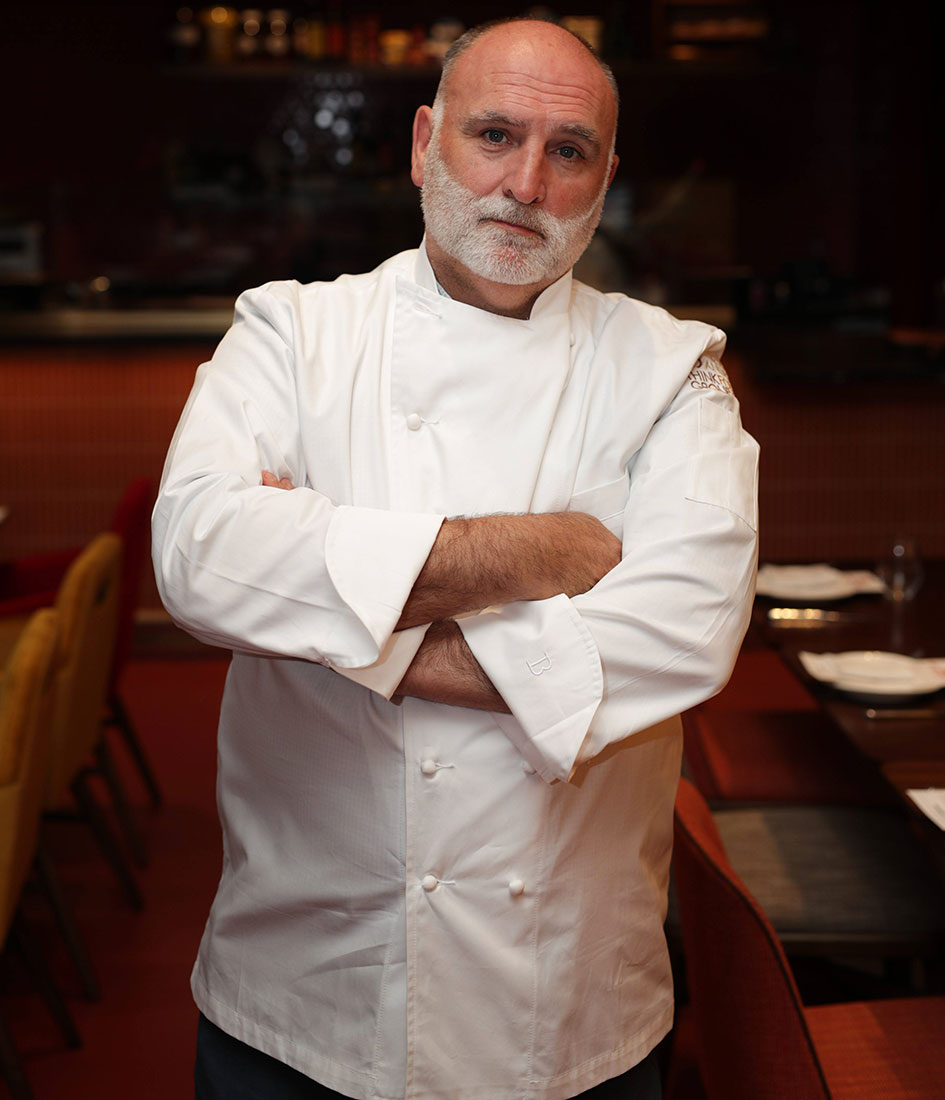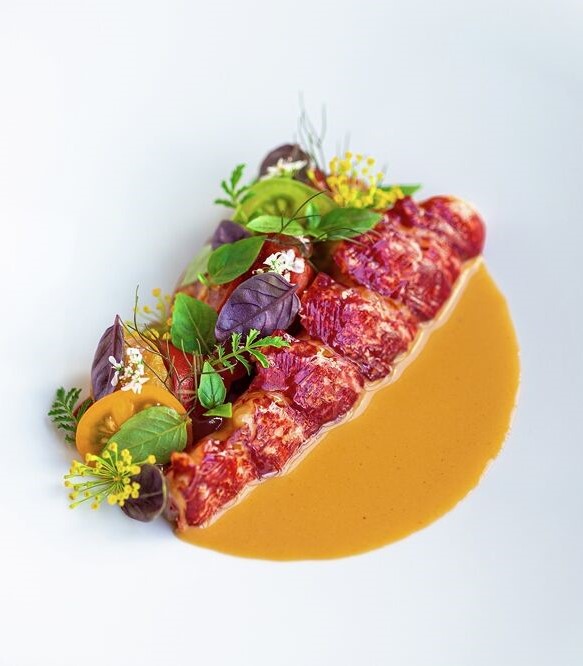The MICHELIN Green Star is awarded to restaurants who are at the forefront of the industry in sustainability. From sustainable cocktails to sustainable dining being a way of life in Baja California, these restaurants prove that being green can be just as tasty as their counterparts.
That’s why, every week, whether it's a restaurant that’s trained 2,000 employees to be more sustainable or a restaurant that promotes feral hog consumption in Texas, we will be highlighting a Green Star restaurant across the United States to share their sustainability story and why it means so much to them.
Chef Dan Barber is a pioneer in sustainability – a true driving force in the future of food.
His MICHELIN Green Star restaurants have become household names: Two MICHELIN Star Blue Hill at Stone Barns and One MICHELIN Star Family Meal at Blue Hill. Canonizing his perspectives onto paper, Barber published The Third Plate: Field Notes On the Future of Food, exploring groundbreaking ideas on sustainability, flavor, and our food systems.
Barber’s impact extends far beyond his own kitchens. His movement has created a ripple effect for a new wave of chefs at MICHELIN Green Star restaurants. As just a few examples, he trained Florida’s Lordfer Lalicon of Kaya, and Colorado Chef Hosea Rosenberg of Blackbelly Market serves produce grown by Barber's Row 7 Seeds.
This is the first part of our interview with Chef Dan Barber. To read the second part, click here.
Before you dive in, if you want to check out our Inspectors' take, click here.

What inspired you to think about sustainability?
I didn't "think" about becoming more sustainable. I don't know where you get that from. That frame’s got to go.I partly grew up on a farm. Blue Hill Farm is a dairy farm in Western Massachusetts, a family farm. I spent my summers working on the farm, so I was really inculcated into these ideas of proper land management and open space, and I was very drawn to it.
As I became a chef, I wanted to support those kinds of farms, and I wanted to do it actively. As you go down the road of becoming a chef, you start to realize what kind of chef you are. It's not just an ethical or moral thing, and I don't know where the f*** this comes from, but my plates are very simple. There's not more than three ingredients on a plate. It's very straightforward-looking.
There's a lot of technique. I’m looking at 35 cooks prepare for service. There's a tremendous amount of effort and technique put in, but I'm pretty naked on the plate. I'm not making a statement on chefs who use very complicated plating strategies and tweezers because there's a certain genius in that too. For some reason, it's not what I ever gravitated to.
If you are naked on the plate, then you better deliver. I was trying to get flavors that would really jump off the plate, and I needed the produce, so that got me to really concentrate on not just locality, but which farms for which ingredients at which time of year. I started spreadsheets, and then I was getting involved with their soil practices, and when they were choosing to harvest.
Right now, we're paying farmers to hold on to cabbages and carrots and parsnips and even potatoes because we want the frost. We know that the light frost turns the starches to sugars overnight, and you get this blast of sweetness and depth of flavor that doesn't come until the frost comes. Most farmers take those vegetables the hell out of the field, because why would they risk a frost ruining part of the crop or destroying the entire crop.
I only got there because I had these ingredients naked on my plate. I kept drilling down to see what varieties I want kept in the ground longer. What particular seeds? And so it got me to breeders. It’s like peeling an onion that starts with my understanding of what my approach is to my culinary craft.
Every chef has an ethical desire for sustainable practices. I'm particularly driven because I have a culinary style that demands it.

For restaurants who haven’t yet focused on sustainable practices, what would you recommend as their first steps?
I’ll stop you there. I don’t think that’s true. If you're a chef, you're three quarters of the way there. The world is headed towards processed food that makes up three quarters of the American diet. So the fact that chefs are cooking with real ingredients, real plants, not fake plants, not plant-based, but plants, and are cooking fresh food is extraordinarily important.One thing that unites chefs is the pursuit of flavor. The fact that we are determining our work in part by what tastes good, and working very hard as chefs do, to produce fresh food that tastes good is nine tenths of the battle.
That makes us the most sustainable individuals on the face of the earth. That isn't really a compliment to the earth, because we have moved away from food as pleasure, and we are looking at it as convenience. We are looking at it as fuel. A farmer said to me 20 years ago, food as fuel is a dangerous concept. It's playing out today.
Chefs are the most sustainable activists, next to farmers in our food system, and the most important because they’re the direct connection between what the world produces and pleasure and hedonism and delight and nutrition. We are the sustainable entity.
There are better practices we could do based on our purchases. Who are we purchasing? Are we purchasing organic or conventional? Are we purchasing local or from Mexico? All those things are important. But we should stop to recognize that as a chef, you are doing a heck of a lot to improve the world.
The Green Star that MICHELIN provides is important in the sense of recognizing the accomplishments of chefs that are working towards practices that help create the kind of world we want to live in. These are chefs that are being recognized for this work in ways that are important to shine a light on. The long-term goal of this is that there's no Green Star. That the Green Star and Stars are the same thing. In the future, we should be and will be judged on the kinds of chefs we are in terms of our buying practices and our overall, holistic participation in making the world a better place.

Besides being a chef, what would you recommend as next steps towards being more sustainable?
Local food systems are key. Local purchases are key. Local purchases tend to be more expensive, and you can't do it squeaky clean or 100%, but if you're going to chip away at anything, you'd be chipping away at locality. Because keeping local farming intact, even if it's not organic, even if it's conventional farming, is very much the order of the day. We have to keep a network of local and regional farms not just intact, but strong. Restaurants are the place to do it.It's not just buying from them, it's advertising them. Wear it on your sleeve and on the menu. Take the time to communicate it to your staff. Utilize the opportunity you have as a restaurant to capture people's attention uninterrupted at a table in the context of pleasure with friends or family, and can actually listen to something. It's an awesome opportunity during the course of a meal.

For people who aren't professional chefs, what can they do to be more environmentally conscious?
Shake the hand of the farmer. There's nothing more powerful. There's nothing more gratifying. And it leads to deliciousness. Knowing where your food comes from is part of the pleasure of eating. And I don't just mean that in a hedonistic way. It's part of the pleasure of digestion too. It's part of the opportunity of having nutrients from food being available. Knowing that we participated in helping directly a farmer in our local region.Cook. Just cooking means someone else isn't cooking for you, and it generally means that you're producing something that's more delicious and healthier. You're taking control of the world in that way. The best step we can take is actually cooking. That's very powerful.
What is the biggest challenge to becoming more sustainable?
The world's burning up around us, so the challenge is that real farming, which I consider soil-based farming, is becoming more fraught. We have a generation of people who are retiring from farming and selling out to development because there's no money, and the effects of that are catastrophic, because you can't go back. Once you lose farmland, this doesn't come back into existence. So, we become more dependent on bigger farms that are farther away from us. Organic farmers are the real leading lights of how we deal with the changing environment.Hero image: Elena Wolfe / Family Meal at Blue Hill
Thumb image: Elena Wolfe / Blue Hill at Stone Barn







